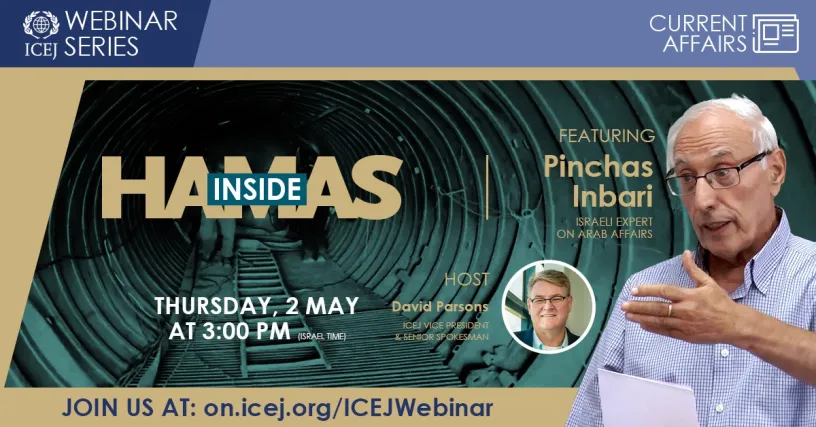 “This Morning’s End Game: What’s Next for Gaza?”
“This Morning’s End Game: What’s Next for Gaza?”
Recent reports about accelerating the return of hostages may indicate that, despite Netanyahu government’s maneuvers, we are approaching Phase B of the deal and the war’s conclusion. It’s time to consider the day after.
While Netanyahu avoids this discussion for obvious reasons, the Arab world is already preparing for it. If we don’t articulate what we want, others will decide for us. From what we can already observe, the emerging processes appear to be the same old tricks that will maintain the status quo, if not worse.
The main issue Israel must insist upon – and there’s no indication Israel is even aware of it – is transforming Gaza’s education system. Amid all the talk about UNRWA, we’ve forgotten the core dispute between UNRWA and donor nations: the UN organization’s education system that promoted conflict with Israel, wrapped in the jihadi narrative that Gazans received in UNRWA schools.
One could argue that this education system, which has indoctrinated generations of Gazans with hatred towards Israel, led to the October 7 massacre and consequently to Gaza’s destruction. The first thing Israel must strongly demand is replacing this terror-promoting education system with one that fosters peace and coexistence.
This is precisely the educational approach of two candidates poised to take roles in post-war Gaza – the UAE and Indonesia. These distinctly Muslim nations have differentiated themselves from other Islamic countries by developing education systems that emphasize individual success rather than promoting the “Jamaa” – the collective ethos that, in Gaza’s case, created a jihadi society.
The UAE and Indonesia had already begun establishing a separate aid system from UNRWA in southern Gaza, but Israel removed them, closing Rafah to leave Kerem Shalom crossing under Qatar’s exclusive control, with all the “day after” implications this entails. In other words: continuing with Hamas and UNRWA.
To understand what a Qatar-led future means, one need not look further than Syria, where Qatar works hand in hand with Turkey. Those who want Turkey in Gaza should stick with Qatar.
But there’s more. Doha is hosting the conference for the Palestinian body supposedly meant to replace Hamas in Gaza – the “Palestinian National Conference.” However, it’s headed by none other than Mustafa Barghouti, a vocal Israel critic who leads a network of NGOs in Ramallah. Using European funding, he maintains militant nationalist rhetoric, viewing any PLO “reform” as a means to enhance the fight against Israel.
Understanding the Doha conference’s true agenda requires revisiting the unresolved PLO-Hamas dispute over a national unity government – a topic currently discussed in Arab and Western diplomatic corridors, from which Israel is notably absent.
What derailed the “reconciliation talks” between the West Bank and Gaza? Hamas demanded PLO membership, which the PLO firmly rejected. The PLO demanded control over Gaza, requiring Hamas to surrender its weapons – more precisely, transfer them to PLO control – and full economic control over Gaza, which Hamas refused to accept. The keyword in understanding PLO’s position was “Tamkin” – something akin to “empowerment” in English. The PLO demanded “Tamkin” – genuine ability to control Gaza.
We’re at the same impasse today. Recently, Abbas signed a “presidential decree” interpreted here as canceling allocations to terror families. Not exactly. The PLO established a new institution called “Tamkin,” meant to manage support for Gaza’s needy, with terror families included among Gaza’s welfare recipients. Classic Ramallah-style maneuvering.
Barghouti’s conference represents Qatar-style manipulation – its hidden agenda is to establish a new PLO with Hamas, potentially under Hamas control, essentially transferring Hamas to the West Bank.
Every day we remain outside the post-war picture and fail to ensure our Gulf allies take responsibility for Gaza, we risk losing not only Gaza but the West Bank as well.








